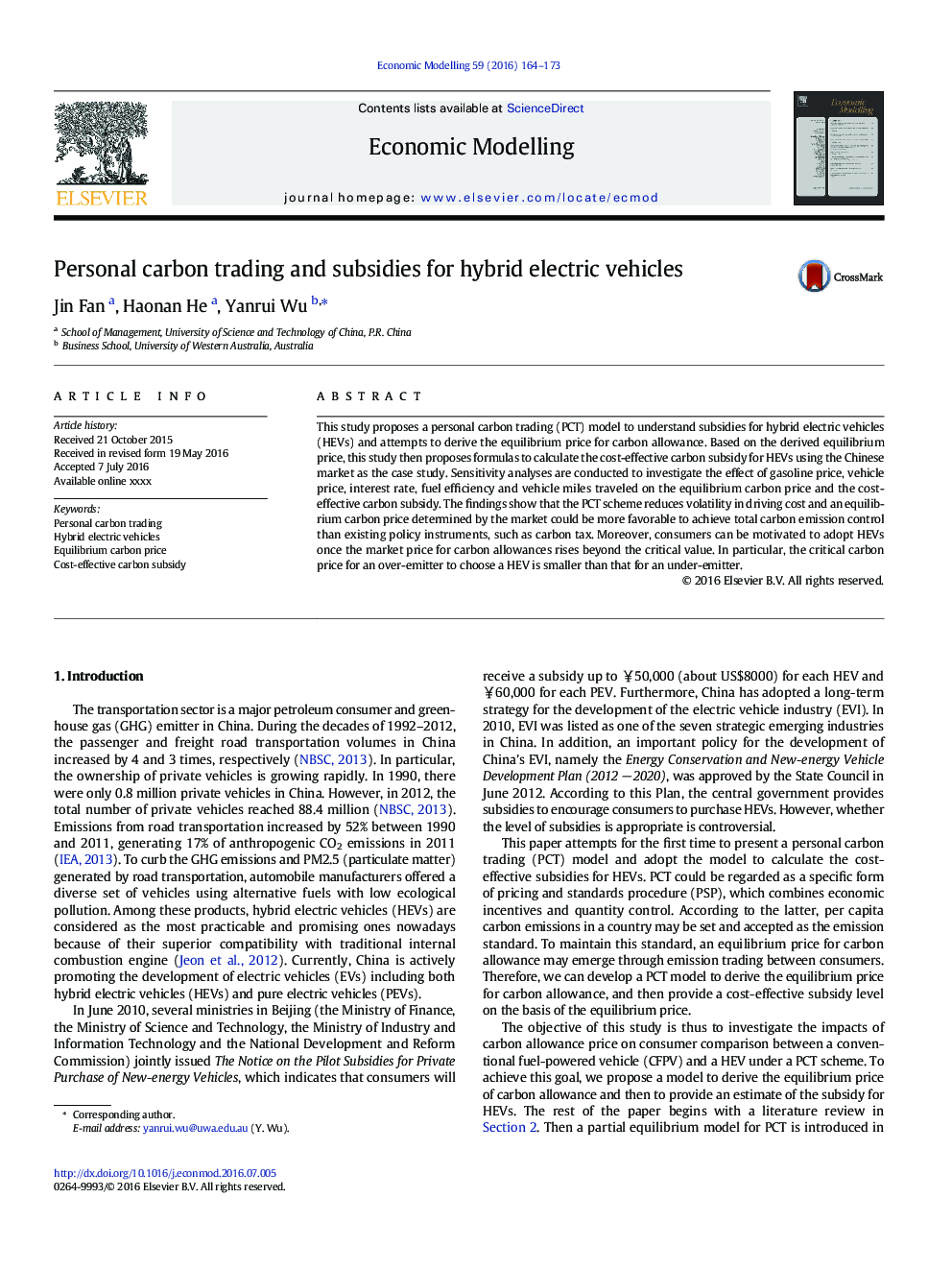| Article ID | Journal | Published Year | Pages | File Type |
|---|---|---|---|---|
| 5053284 | Economic Modelling | 2016 | 10 Pages |
Abstract
This study proposes a personal carbon trading (PCT) model to understand subsidies for hybrid electric vehicles (HEVs) and attempts to derive the equilibrium price for carbon allowance. Based on the derived equilibrium price, this study then proposes formulas to calculate the cost-effective carbon subsidy for HEVs using the Chinese market as the case study. Sensitivity analyses are conducted to investigate the effect of gasoline price, vehicle price, interest rate, fuel efficiency and vehicle miles traveled on the equilibrium carbon price and the cost-effective carbon subsidy. The findings show that the PCT scheme reduces volatility in driving cost and an equilibrium carbon price determined by the market could be more favorable to achieve total carbon emission control than existing policy instruments, such as carbon tax. Moreover, consumers can be motivated to adopt HEVs once the market price for carbon allowances rises beyond the critical value. In particular, the critical carbon price for an over-emitter to choose a HEV is smaller than that for an under-emitter.
Related Topics
Social Sciences and Humanities
Economics, Econometrics and Finance
Economics and Econometrics
Authors
Jin Fan, Haonan He, Yanrui Wu,
